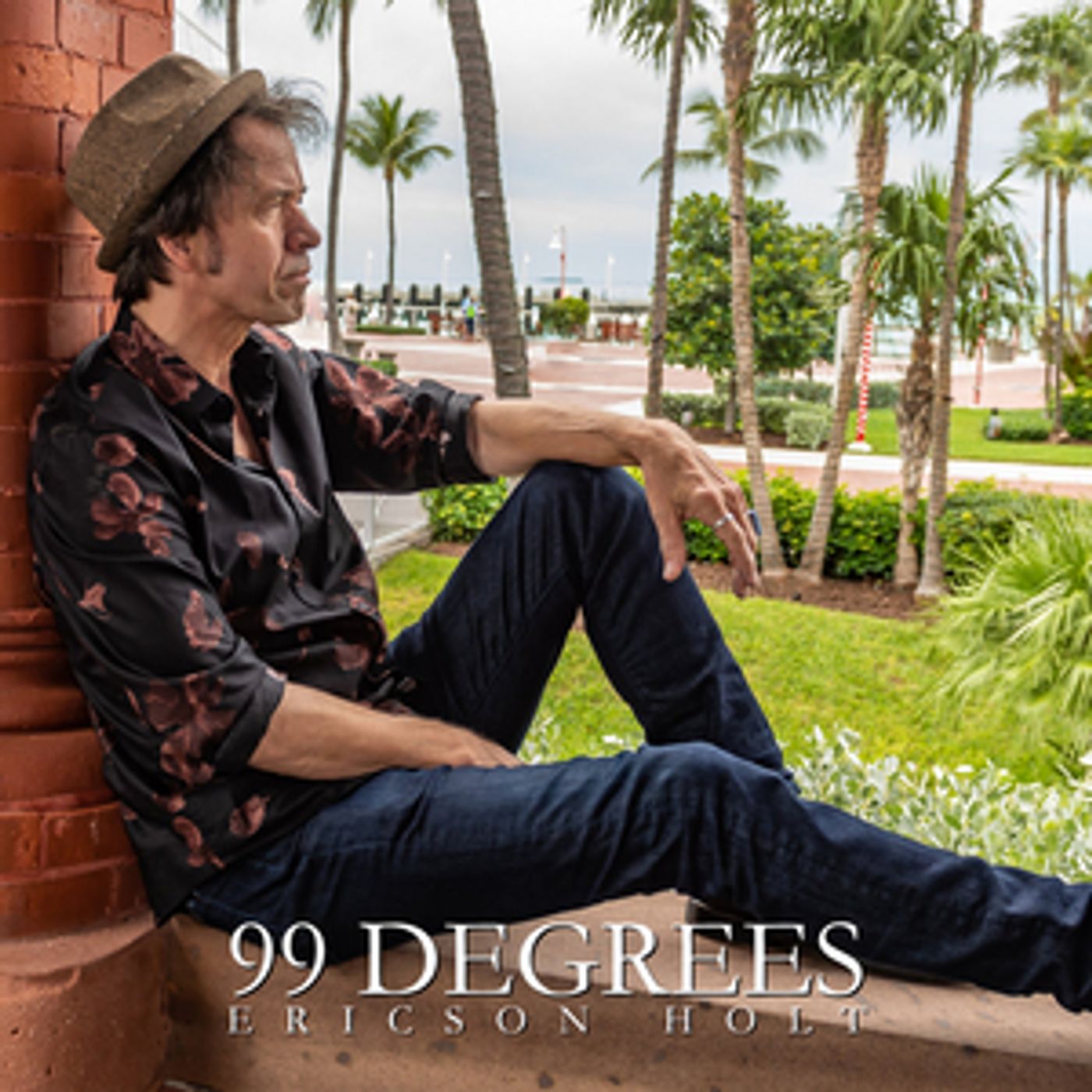Key West's Ericson Holt to Release '99 Degrees'
The music is similarly rich and nuanced to match, drawing on everything from 70’s AM rock and soulful folk to raucous boogie-woogie and second-line funk.

Ericson Holt is pleased to announce the release of 99 Degrees via Conch Town Records on August 20, 2021.
Though his music is often steeped in the blues, it's the gray areas that fascinate Ericson Holt the most. With his captivating new album, 99 Degrees, Holt explores the almosts and the in-betweens, the missed chances and the could-have-beens, the close calls and the never-quites. The characters here contain multitudes, walking a fine line between hope and desperation as they navigate a world that seems perpetually stacked against them. The music is similarly rich and nuanced to match, drawing on everything from 70's AM rock and soulful folk to raucous boogie-woogie and second-line funk. Although based in Key West, Holt cut the majority of the album in just two days with an all-star band of Nashville heavyweights (many of whom he knew from his work as a first-call session player and sideman) and finished it in Key West and London. The result is a collection of raw, spontaneous, organic performances that breathe life into everyday folks living on the margins, ordinary men and women struggling to get by, stay in love, and find a little bit of light in the darkness.That immediacy is the heart and soul of "99 Degrees," which radiates gritty energy and passion at every turn. Lead single "Walkin' on Bourbon Street" sets the stage, morphing from a bluesy musical history lesson into an ecstatic celebration fueled by punchy horns, intoxicating rhythms, and soulful backing vocals from gospel stalwarts The McCrary Sisters, who appear throughout the record. Like much of Holt's catalog, the song is steeped in the sense of place and imbued with longing and desire; the narrator wants to party, but he is not just another carefree reveler. He's on a musical pilgrimage. He sings, "I've got to get back down where my soul keeps goin'" and pleads with his lover to "come back with me one more time." Such a need for human connection is a recurring theme on the album, and it's one that Holt examines from several angles. In "Empty Without A Secret," for instance, a suspicious lover admits that "I'm just a restless soul the same as you are." In the bluesy, comical, Leon Russell influenced "Clever Girl," Holt sings, "I've forgotten how to cry, but it'll come back to me."
Holt's characters know where they stand on the social and economic ladder, and for some, the American Dream is more like a mirage. The brooding, prayerful "Help Us Now" inspired by the Judith Richards novel "Thelonius Rising", looks at how the nation turned its back on New Orleans in the wake of Hurricane Katrina through the eyes of a young boy living in the 9th Ward. In the soaring "Beautiful World," the narrator deals with nationalism and religion, promising that we "will never lead lives of quiet desperation, anger, hurt, and pride ... longing for the other side ..." The Warren Zevon-esque "Walking In Our Sleep" shouts "So high and so proud, you get to steal, we get to plow" ... "They told us a lie and called it history," he sings. "They cheated us blind, but we just couldn't see." Rather than allowing his characters to wallow in heartbreak or bitterness, Holt insists on celebrating their resilience, their unwavering ability to find hope, beauty, and meaning in their lives. Perhaps no song embodies that notion better than the sweltering title track, which feels more than just a little autobiographical given Holt's journey. "I was freezing on those city streets chasing someone else's hopes and dreams," he sings, "while my soul was waiting in the sweet sunshine." "So good to feel the sun on my face. Oh Lord, almost home." With 99 Degrees, Ericson Holt isn't just chasing dreams; he's living them.Videos

